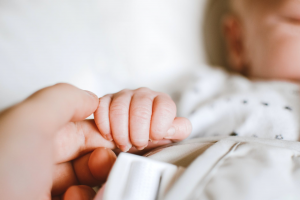
©pexels
Covid-19 has a big impact on the care given in Neonatal Intensive Care Units (NICUs). The implementation of family centred care has increased in recent years due to many health benefits for the neonates and family, but the Coronavirus pandemic caused hospitals to change their visitation policies.
In a study conducted by Murray and Swanson, changes of the visitation rights in the NICUs and the consequences for parents and their newborns are discussed. In order to prevent the spread of the Coronavirus in NICUs, visitation policies have been restricted. Therefore, in some NICUs, parents were not allowed to see their newborns while visitation rights were reduced in others. Since hospitals can develop their own protocols, guidelines for visitation during the pandemic differ across institutions, which results in inequalities between families whose newborns stay at different hospitals.
Anticipating the consequences of these restrictions is difficult. Many health benefits for the baby’s development and the parent’s mental health can be attributed to family centred care. It is therefore important to include parents at the bedside to reduce stress, especially as high parental stress is also known to impair the infants’ development. Thus, helping parents cope with the stressful NICU experience has a big positive impact on parents and newborns alike.
When parents are not allowed to see their baby in person, a helpful alternative can be real-time videoconferencing via camera systems or even a smartphone. This can provide parents and other family members with the possibility to see the newborn and interact with healthcare personnel, which reduces stress and anxiety. Furthermore, to help parents cope, support group meetings should take place online, since in-person meetings are not possible during the pandemic and peer-to-peer support plays a significant role in mental health. If the hospital allows restricted visitation only, it is important to continue mental health support for parents by specialists.
Moreover, Kangaroo Care, which is imperative for the development of newborns and especially neonates, has also been restricted in many NICUs since the start of the Coronavirus pandemic. Parental bonding through Kangaroo Care or even reading to the baby can help with postpartum depression. Parents talking to their newborns furthermore helps with preterm infant vocalisations. Therefore, healthcare staff has to make sure to interact with the newborns when parents are not allowed to in order to help with neurobehavioral outcomes of the child.
Concluding, Murray and Swanson state that visitation in NICUs should not be changed due to a pandemic, in order to ensure the best health outcomes for newborns and their parents. Nevertheless, if restrictions are implemented for whatever reason, healthcare personnel should adapt their care to aid parents and babies through this difficult time with the least drawbacks to health.
Read the full article here: Journal of Perinatology
Full list of authors: Peter D. Murray, Jonathan R. Swanson
DIO: 10.1038/s41372-020-00781-1

